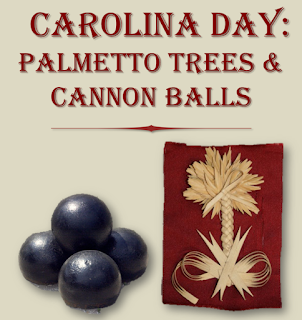1776
Things weren't going very well for the Patriots in the early days of the American Revolution. Though there were some victories - such as the British being forced to evacuate Boston in March 1776 - there were some heavy losses as well. The Battle of Bunker Hill was one of the bloodiest battles in the entire war and the campaign to bring Canada over to the Patriots' side was a complete disaster.However, the Patriots were gaining enough ground to worry the British. So the Brits decided to start a Southern campaign, beginning with the conquering of a Southern port.
Portal to the South
The South was a goldmine to whichever side could hold it. Southern commodities like tobacco, rice, indigo, and pine tree products made the South the richest area of the country.Furthermore, the British felt that they had much stronger support from the Loyalists in the South than in the North. They didn't reckon on the strong Patriot contingent in the South as well.
As it turned out, the people of the Southern states were so deeply divided between Patriots and Loyalists that some of the hardest and bloodiest fighting of the war would occur there.
But General Henry Clinton and Admiral Parker knew nothing of what was to come. They initially headed for Cape Fear, NC to establish a port of entry for the British. This did not work out so the next stop was Charleston. Earlier reconnaissance had shown that the fortifications around Charleston were incomplete, making it an easy target - or so the British thought.
Spongy Wood and Cannon Balls (and Cockades)
In early June, nine British warships sailed into Charleston's harbor and troops were landed on Long Island. The idea was that the soldiers could wade ashore from there to the city while the ships bombarded into oblivion the half-complete fort on Sullivan's Island. The British miscalculated on both counts.The water turned out to be too deep to wade. And the fort - well, the sand and palmetto logs used for constructing the walls simply absorbed the cannon balls! Because of this battle, palmettos have ever since been the symbol of South Carolina, and her patriotic cockades have often included palmetto fronds.
Meanwhile, the Patriots were low on ammunition so they made every shot count. They managed to significantly damage a number of the ships, plus the British accidentally grounded one ship.
The British had 220 killed and wounded; the Patriots had 12 killed and 25 wounded.
Oh, and the ship that was grounded? The Brits finally despaired of recovering her so they set her on fire. But the resourceful Patriots swam over and managed to turn the ship's guns on the British themselves - and then escape before the ship blew up!
Heroes of the Battle
| Sergeant Jasper holding up the flag - painting by John Blake White, 1826 |
During the battle, the Patriots' spirits reportedly were flagging when the British shot down their flag. Sergeant William Jasper heroically grabbed the flag and held it up until a new flag staff could be mounted. His action brought new life to the fort's defenders and he has been immortalized throughout American history as a hero. (If you check your family tree, you may even have an ancestor named after him, like I have!)
Carolina Day
The Patriot victory on June 28 ensured that Charleston's port would be closed to the British until its eventual fall in 1780 - too late to turn the tide of the war. The Battle of Sullivan's Island was one of the first major victories for the American Patriots. And it provided an exclamation point to the Declaration of Independence, which would be signed less than a week later.Carolina Day has been celebrated by lovers of freedom and American history ever since.





No comments:
Post a Comment